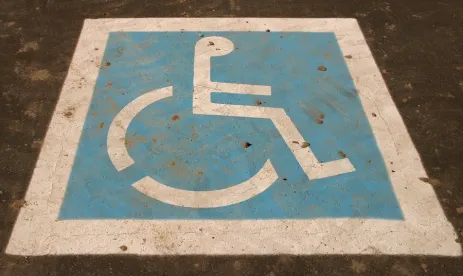For businesses growing weary of the seemingly perpetual wave of serial ADA claims (e.g., website accessibility; gift card accessibility), thanks to a recent decision issued by a federal judge in the U.S. District Court of the Eastern District of New York (“EDNY”), some may believe that “Christmas came early.” Last week, EBG achieved an impressive victory, obtaining a complete dismissal of a serial plaintiff’s class action complaint in the case Castillo v. The John Gore Organization.
In Castillo, plaintiff, a King’s County resident, who asserted that she has diabetes, alleged that she was denied access to defendant’s Boston theater because of her disability. Specifically, she asserted that “in or around December 2018,” she visited the defendant’s website, allegedly to purchase a ticket to a performance; however, after she saw the theater’s general policy prohibiting patrons from bringing outside food into the theater, she did not do so. Plaintiff contended that because she required specific snacks with her at all times, defendant’s policy “deterred” her from visiting the theater. Notably, she did not allege that she ever contacted the theater to ask whether it would modify its policy. Tellingly, this was notwithstanding the fact that the home page of the theater’s website contained an express invitation for visitors to contact the theater with any accessibility questions. If the general nature of these allegations sounds familiar to you it is because over the past eighteen months similar claims were filed by the plaintiff and/or her counsel in New York state and federal courts against a significant number of theaters, arenas, and stadiums.
The court dismissed the complaint in full on subject matter jurisdiction grounds, holding that plaintiff lacked standing to pursue her federal, state, and city claims because she failed to plead that she suffered any injury, or that she would suffer any future harm. The court reinforced that the elements of standing “are not mere pleading requirements but rather an indispensable part of the plaintiff’s case.”
The court held that plaintiff failed to allege that she had ever visited, or tried to visit the theater, and accordingly, she lacked “actual knowledge” of the alleged barrier, rendering her unable to demonstrate that she suffered any injury. The court rejected plaintiff’s attempt to lower the pleading standard by relying on the ADA’s futility doctrine – which provides that an individual with a disability does not have to engage in a futile gesture where that person has notice that the company does not intend to comply with the ADA. The court also held that plaintiff failed to show that she would suffer any future harm, finding her “broad allegation” that she intends to patronize the theater once the alleged access barriers are remedied, insufficient to demonstrate an intent to return.
While the holding in Castillo is, of course, fact-specific, it is yet the latest indication that – perhaps growing as tired of serial ADA claims as businesses are – New York federal courts are increasingly strictly enforcing the standing requirements that plaintiffs must meet to maintain Title III actions. This trend may prove very telling as we expect early 2020 to be ripe with businesses mounting challenges to the newest mass filing of lawsuits asserting that business failed to provide Braille gift cards.





 />i
/>i

